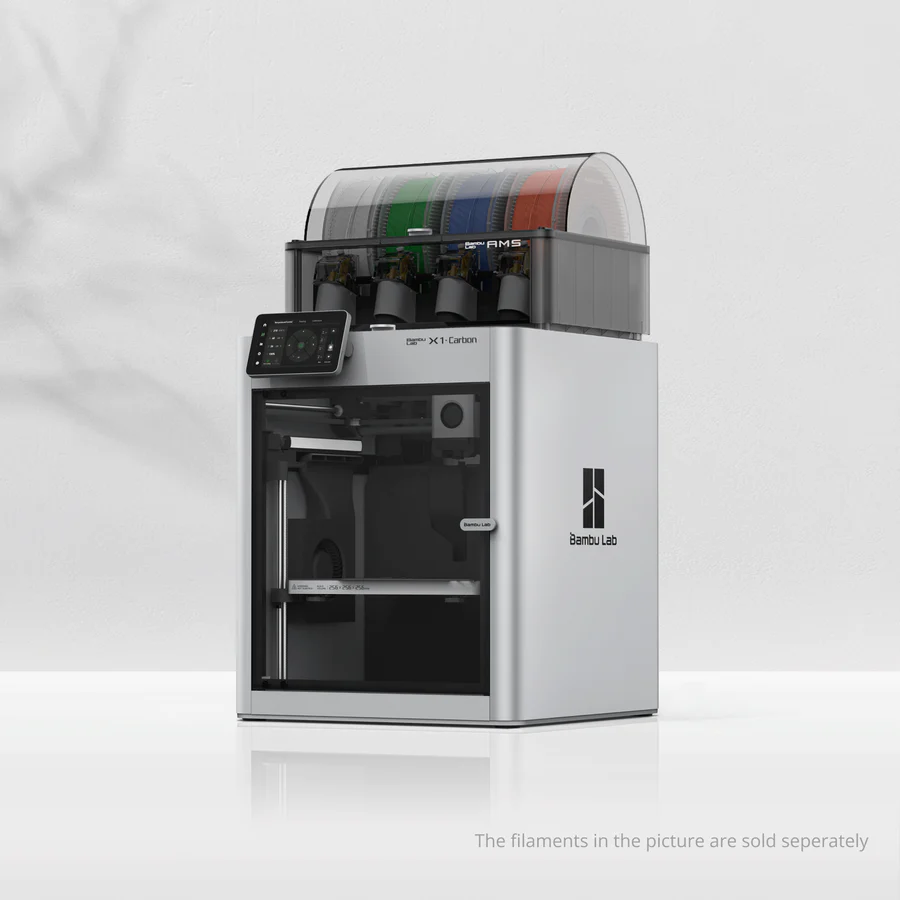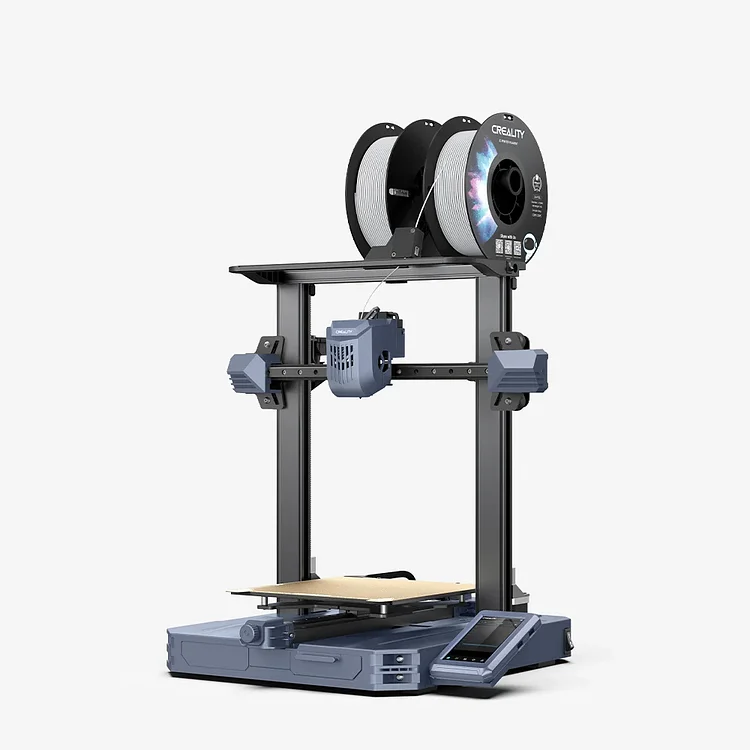Compare X1 carbon vs CR10 SE
Comparison between the best 3D printers
Choose the best 3D printer at the best price. The cheapest 3D printers are here.
Buy a 3D printer here with 3D Fila.
 |
 |
|
| Model | X1 carbon |
CR10 SE |
| Printing Material | Filament | Filament |
| Buy Filament for Bambu Lab X1 carbon | Buy Filament forCreality CR10 SE | |
| Estimated price | $1449,00 | $386,00 |
| Manufacturer | Bambu Lab | Creality |
| Release Year | 2023 | 2023 |
| Print Volume [mm] | 256x256x256 | 220x220x265 |
| Printer Size [mm] | 389x389x457 | 490x470x625 |
| Weight [kg] | 14,13 | 6,9 |
| Power Loss Recovery | YES | NO |
| Enclosed printer | YES | NO |
| Bed Leveling | Automatic | |
| Filament End Sensor | YES | NO |
| Bed type | Heated | |
| Power supply system | Direct Drive | Direct Drive |
| Standard nozzle | 0,4 | 0,4 |
| Maximum Nozzle Temperature [°C] | 300 | 300 |
| Maximum Bed Temperature [°C] | 120 | 110 |
| Maximum printing speed [mm/s] | 500 | 600 |
| Filament holder | YES | YES |
| Camera for supervision | YES | YES |
| Recommended filaments | PLA, PETG, TPU, PVA, PA, PA-CF, Nylon, PC | PLA, PETG, PET, TPU, PA Wood, ABS, ASA, PA, PLA-CF |
| Recommended slicers | Bambu Studio, Super Slicer, Cura, Prusa Slicer, Orca | Creality Print, Cura, Simplify3D, PrusaSlicer, Orca Slice |
| Maximum Resolution [mm] | 0,1 | 0,1 |
| Processor | Quad ARM A7 1.2 GHz | |
| Display | Touchscreen 5'' | |
| Power Supply | 350 W | |
| Connectivity | Wifi, Bambu bus, Cartão SD | USB, Wifi |
| Operating systems | Windows, Linux, Macbook | Windows, Linux, Macbook |
| Date of registration in the system | 2024-04-10 | 2024-07-02 |
| Release date | 2023 | 2023 |
| Extra features | The Bambu Lab X1 Carbon revolutionizes 3D printing with stunning design, high print speeds, and a streamlined user experience. It stands out with its CoreXY system, a hotend capable of reaching 300°C, allowing for a wide range of filaments. Its LiDAR-assisted bed leveling system, vibration compensation, and AMS multicolor printing capability raise the industry standard. Print quality is impressive, with the ability to fine-tune for perfection. The X1 Carbon, with its closed build volume, not only promises but also delivers one of the most advanced 3D printing experiences available to consumers. | The Creality CR10 SE stands out for its printing speed of up to 600 mm/s, easy and intuitive assembly, direct extruder with double gears, hotend with hardened steel nozzle and ceramic heater, automatic leveling with CR-Touch and pressure sensor, and use of Creality OS firmware based on Klipper, with automatic input shaping calibration. It also includes Wi-Fi connectivity, a filament out-of-stock sensor and a robust structure with linear rails on the X and Y axes. |
| Support for multiple colors and materials (AMS and CFS) | YES | NO |
Notes * |
||
| Cost-benefit | 7 / 10 | 7 / 10 |
| Hardware | 6.4 / 10 | 2.4 / 10 |
| Tela | . | . |
| Print volume | 4 / 10 | 3 / 10 |
| Performance | 4 / 10 | 5 / 10 |
Conclusion |
| In conclusion, both the Bambu Lab X1 Carbon and the Creality CR10 SE present compelling choices for 3D printing enthusiasts, but they cater to different needs and budgets. The X1 Carbon excels with its advanced features such as automatic bed leveling, a closed design for better print quality, and support for a wide range of filaments, making it ideal for those seeking high performance and versatility. Its high print speeds, along with state-of-the-art technology like LiDAR-assisted leveling, set a new standard in the industry. On the other hand, the CR10 SE stands out as a more economical option, providing excellent performance for its price. With impressive print speed capabilities, intuitive assembly, and essential features like automatic leveling and Wi-Fi connectivity, it offers great value for users who prioritize affordability and simplicity without sacrificing too much on quality. Ultimately, the choice between these two 3D printers will depend on your specific requirements, budget, and how much you value advanced features versus cost-efficiency. |

